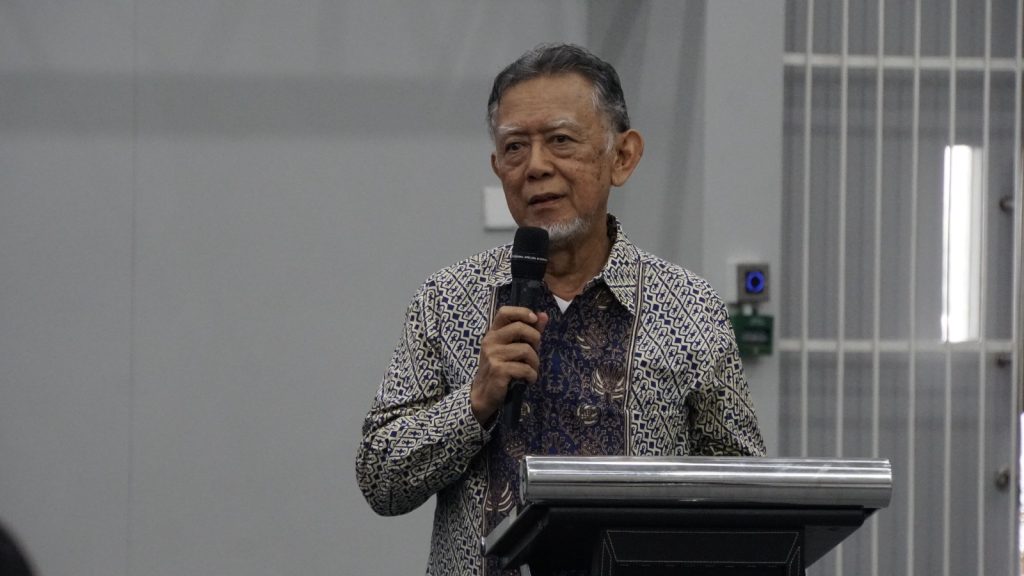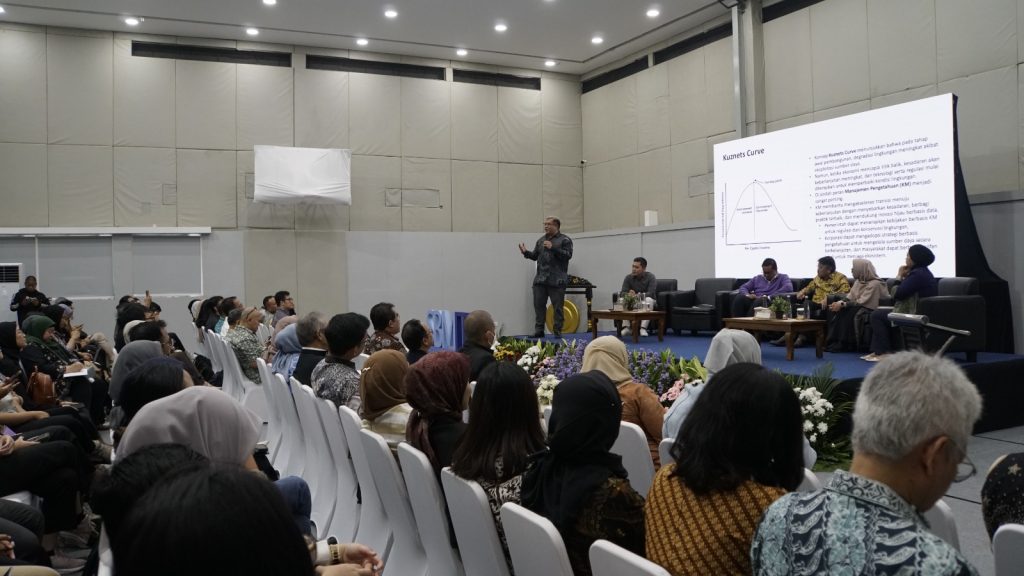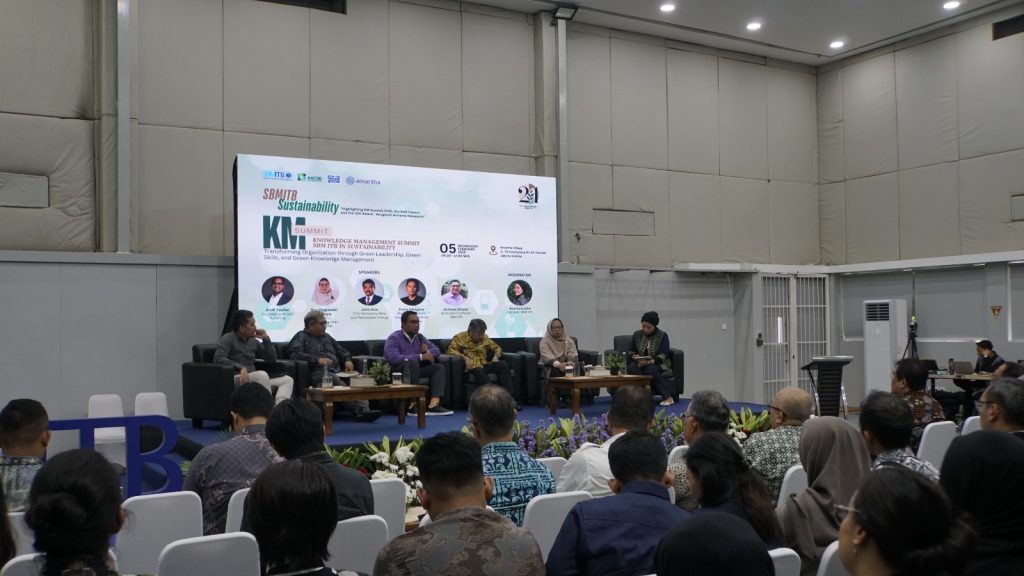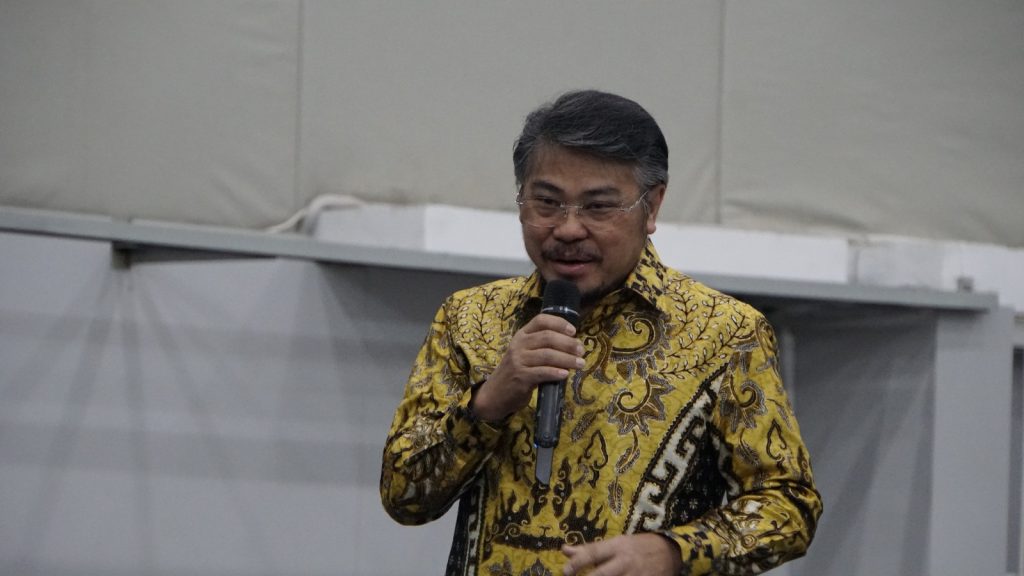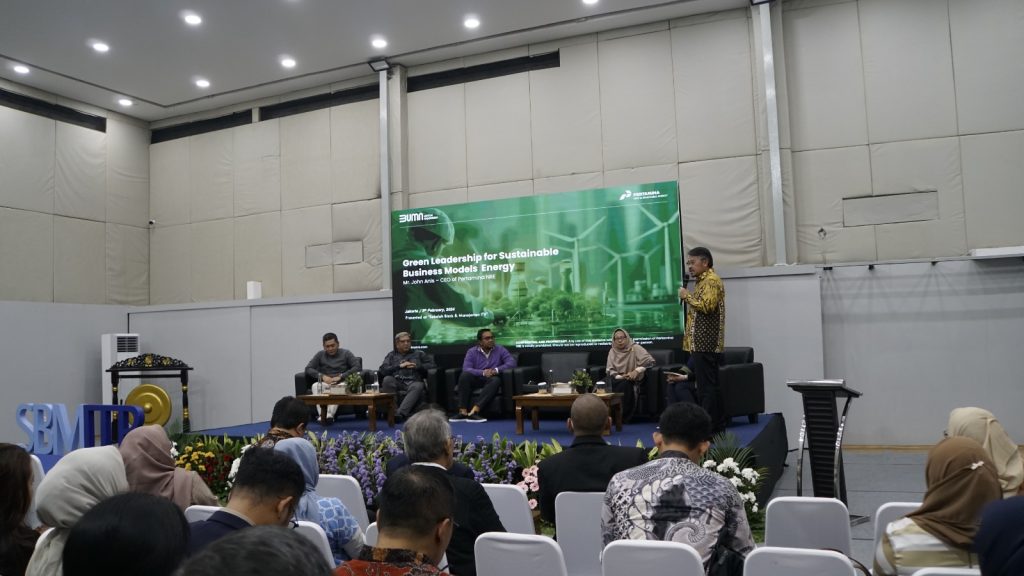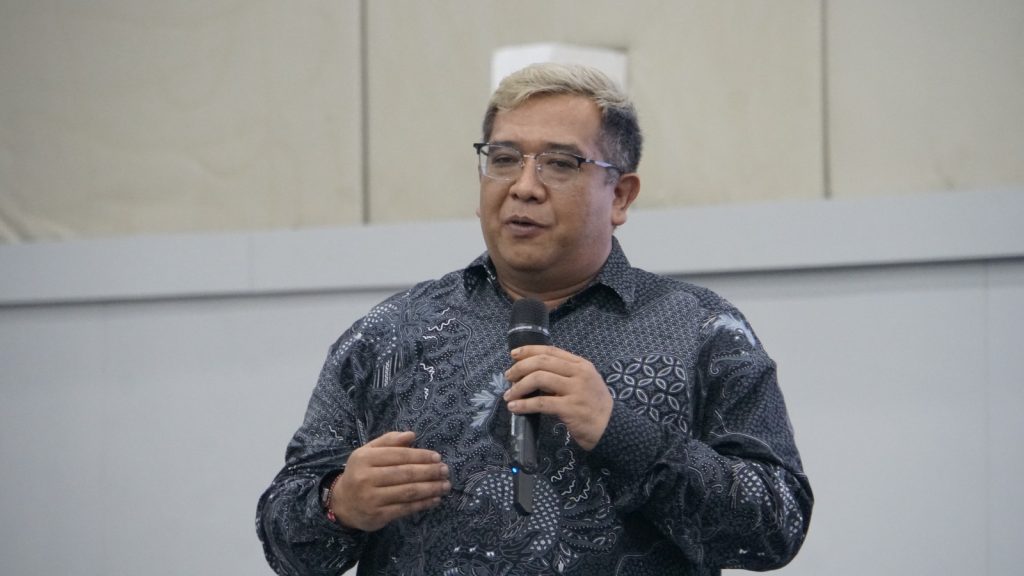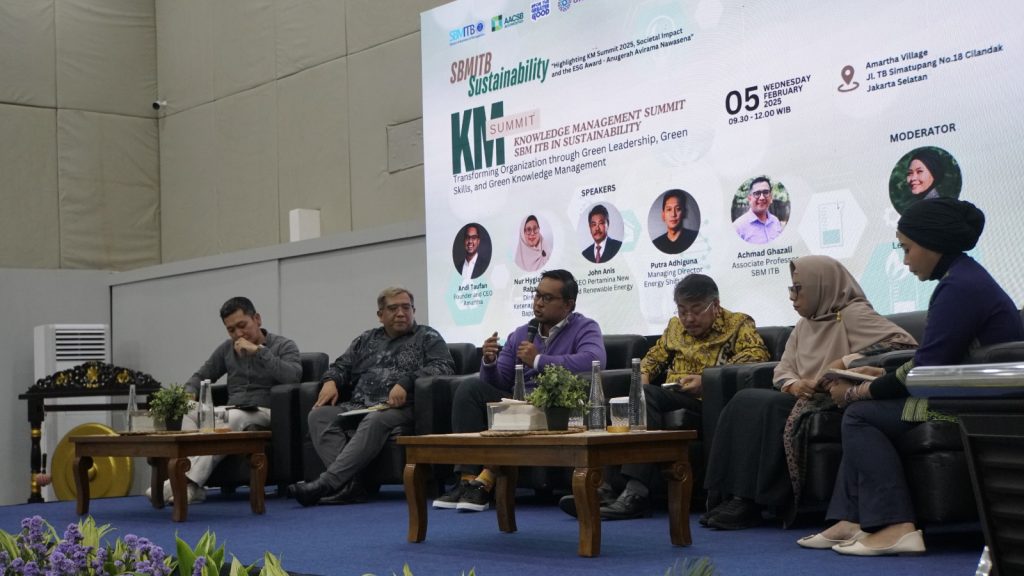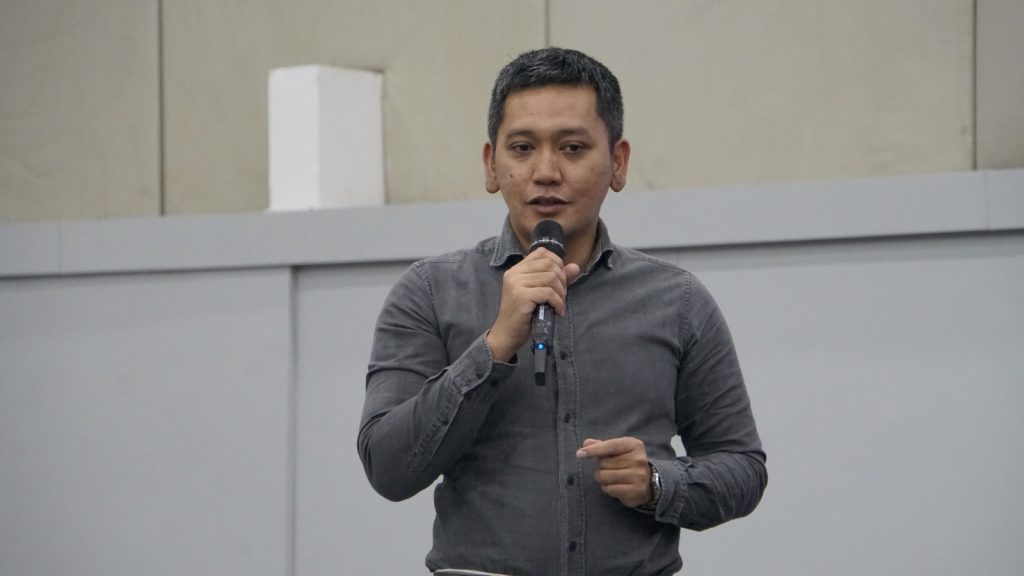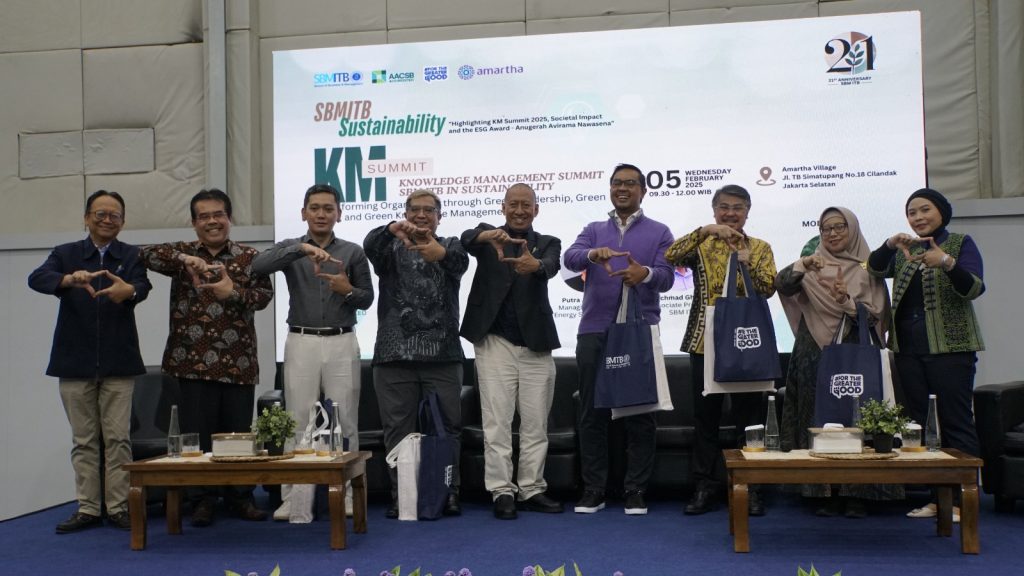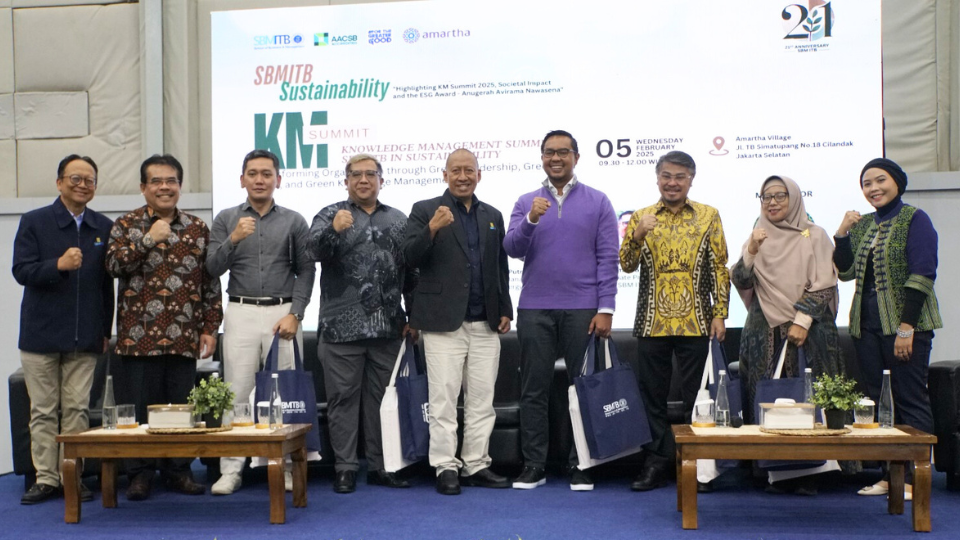According to Achmad Ghazali, Associate Professor at the SBM ITB, environmental degradation is worsening due to excessive exploitation in the development process.
“Awareness only begins to rise once people experience the negative impacts. At that stage, efforts are made to restore environmental conditions, and this is where Knowledge Management plays a crucial role,” Ghazali said.
He highlighted that local wisdom is a form of knowledge management that has successfully preserved and passed down knowledge for generations. Ghazali made these remarks while presenting in the second session of the Knowledge Management Summit talk show, part of the Avirama Nawasena Award (AAN) and SBM ITB’s 21st Anniversary celebration, held at Amartha Village, Cilandak, South Jakarta, on Wednesday (5/2).
This year’s KM Summit focused on organizational transformation through green leadership, green skills, and green knowledge management. The event brought together leading speakers from academia, industry, and government to discuss sustainability challenges and solutions relevant to Indonesia’s future.
Andi Taufan, Founder and CEO of Amartha, shared his 15-year journey in managing the company and its efforts in promoting sustainable business practices in Indonesia. Amartha collaborates with non-profit organizations to develop sustainable agricultural practices for seaweed farmers.
“We focus on empowering women-led MSMEs, which significantly impact the environment and local communities,” Taufan said.
Meanwhile, John Anis, CEO of Pertamina New & Renewable Energy (Pertamina NRE), spoke about Pertamina’s role as a clean energy provider and its commitment to achieving net zero emissions by 2060. He outlined Pertamina’s dual-growth strategy, which strengthens its existing businesses while expanding low-carbon initiatives, including developing renewable energy sources such as geothermal, bioethanol, and green hydrogen.
“Pertamina NRE operates based on three main principles: energy independence, energy security, and driving the energy transition,” Anis said.
Nur Hygiawati Rahayu, Director of Manpower at BAPPENAS, emphasized the importance of green economic transformation as a key strategy to help Indonesia escape the middle-income trap. She stressed that highly skilled and competent human resources are essential for sustainable development as the country moves toward a green transition.
“Green jobs have been prioritized in the National Medium-Term Development Plan (RPJMN) to support the transition to a green economy,” she said.
Closing the discussion, SBM ITB professor Prof. Dr. Jann Hidajat Tjakraatmadja, MSIE, underscored the significance of science as a foundation for life, particularly in navigating the green transition.
“Knowledge is the source of life, and the KM Summit serves as a platform to exchange and share knowledge,” he said.
